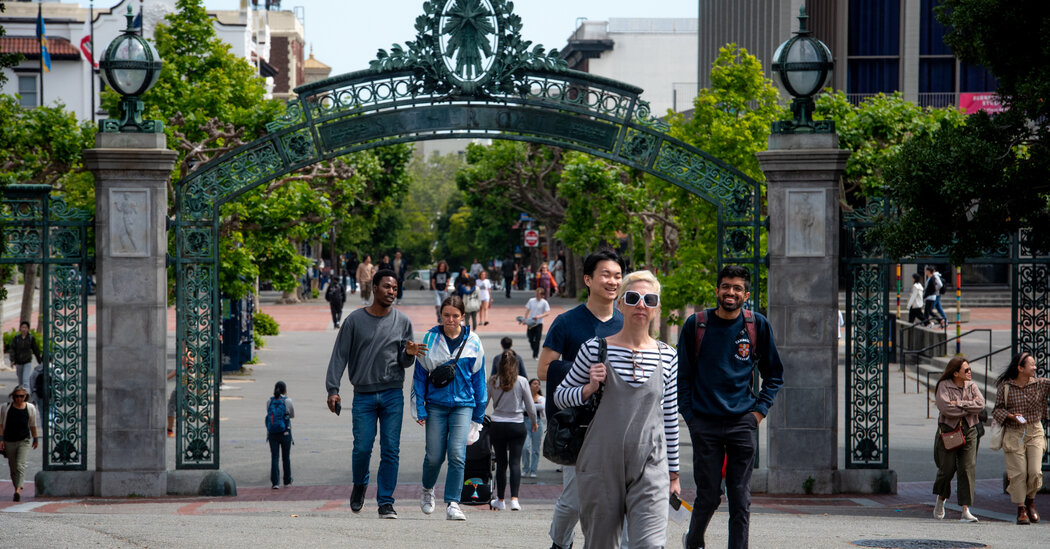Department of Justice Launches Investigation into California Universities’ Admissions Practices
On Thursday, the Department of Justice announced a significant initiative to investigate whether several prestigious universities in California are in compliance with the Supreme Court’s 2023 ruling that prohibits the consideration of race in college admissions. This proactive measure, described as “compliance review investigations,” will specifically target Stanford University as well as three campuses within the University of California system: Berkeley, Los Angeles, and Irvine. The announcement was made by Attorney General Pam Bondi, who emphasized the administration’s commitment to ensuring fairness in educational opportunities.
“President Trump and I are dedicated to ending illegal discrimination and restoring merit-based opportunity across the country,” Ms. Bondi stated in her announcement. However, it remains unclear whether similar compliance reviews will extend to other colleges and universities nationwide.
The legal battles that led to the Supreme Court’s decision stemmed from cases brought forth by the organization known as Students for Fair Admissions, targeting Harvard University and the University of North Carolina at Chapel Hill. In these lawsuits, plaintiffs presented statistical evidence, including standardized test scores, to argue that certain racial groups, notably Black and Hispanic students, received preferential treatment in admissions processes. They contended that such practices violated the principles established by the 14th Amendment.
Notably, California public colleges and universities have been barred from employing affirmative action in their admissions processes since the passage of Proposition 209 in 1996. The implementation of this proposition had a profound impact on enrollment figures for Black, Hispanic, and other minority groups in the state’s more selective public institutions. For instance, the percentage of Black students enrolled at UCLA plummeted from 7 percent before Proposition 209 to just 3.43 percent in 1998. However, by 2019, this figure had rebounded to 5.98 percent, reflecting a modest recovery in representation (California’s overall population is approximately 6.5 percent Black).
As a private institution, Stanford University is not subject to the restrictions imposed by Proposition 209. The university responded to the announcement by asserting its commitment to adhering to the law, stating that it had already implemented measures to comply with the Supreme Court’s ruling. Moreover, Stanford noted that it had yet to receive any specific information regarding the Justice Department’s investigation.
The University of California system did not provide immediate comments regarding the Justice Department’s announcement. This review follows a recent lawsuit initiated in February, which accuses the University of California system of violating anti-discrimination protections in its admissions practices. The plaintiffs, represented by the group Students Against Racial Discrimination, have called for a court order mandating that admissions be conducted “in a colorblind manner,” thereby eliminating what they deem to be “corrupt and unlawful race and sex preferences” that detract from academic merit in favor of diversity considerations.
In a related development, the Department of Health and Human Services also announced on Thursday that it is initiating an investigation into allegations surrounding discriminatory admissions practices at a “major medical school” in California, though it has not disclosed the identity of the institution involved.




